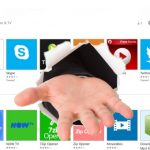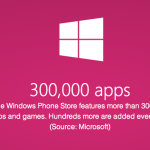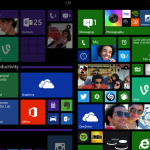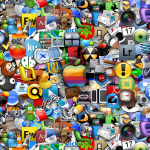Developer: Windows Store is a disaster

One of the features that an app store must absolutely get right is search. Users have to be able to find what they are looking for and discover titles that meet their needs. At the same time, developers who spend time creating apps need to have their titles easily available to potential customers. If one, or both, of these requirements is not met, that creates a serious problem.
Windows Store is in this exact situation, according to multiple developer reports. Microsoft has been unable, or, worse, unwilling, to make the search functionality as useful as users and developers might like, at a time when Windows Store is already being penalized by its pitiful selection of top-tier and quality apps.
Google Play gets more downloads, but Apple's App Store leads in revenue

Apple's App Store generated 75 percent more revenue than Google Play in 2015, but the latter is now responsible for 100 percent more downloads, according to a new report on the state of the app ecosystem in 2015 by App Annie. Both numbers are higher compared to the previous year.
App Store has increased its revenue lead to 75 percent from 70 percent in 2014, while Google Play saw its downloads lead rise from 60 percent in the same year. The most important markets were, in Apple's case, China, US and Japan, while for Google the drivers were Brazil, India, Indonesia and Mexico.
The New York Times embraces virtual reality with NYT VR app and Google Cardboard

The New York Times is an institution -- one of the most important and respected news outlets in history. While some will decry its pro-liberal stances, even conservatives cannot deny the strong writing and relevant topics.
Today, the news organization takes a very weird, albeit cool, path in its quest to stay relevant in the digital age. Shockingly, it is partnering with Google to embrace virtual reality with a new mobile app called "NYT VR"; I kid you not, folks. The app will require Google Cardboard, which the New York Times will give away to some of its readers as a promotion.
App Store revenue is 80 percent higher than Google Play

App Annie has released its mobile app market report for Q3, and the headline news is that Apple continues to make more money with iOS, whereas Google’s download numbers are increasing with Android.
It is, though, the money made which really counts, and the global indexed revenue from Apple’s App Store is now 80 percent higher than Google Play, according to App Annie’s figures.
Windows 10 devices make up more than half of Store downloads

Windows 10 devices were responsible for over 50 percent of all Windows Store downloads in September, according to the latest Windows Store Trends update from Microsoft. The new operating system had been installed on over 100 million devices by the end of last month, increasing its reach to more than 110 million devices earlier in October.
That is not the only piece of good news, as Microsoft also says that Windows 10 gets two times better user engagement and four times the revenue per user compared to Windows 8.x. The most popular category of apps with Windows 10 users is games, which makes up just shy of 45 percent of all Windows 10 downloads.
How to sideload apps in Windows 10

The sideloading of apps is something that most people associate with smartphones and tablets. If you want to install unofficial apps on your iPhone, Android, or Windows Phone handset, there are things you can do to make this possible. The same is true with Windows 10 assuming you are using build 10122 or newer.
If you want to be able to install apps that are not featured in the Store, all you need to do is enable Developer Mode. As the name would suggest, this is something that will be of particular interest to developers as it makes it possible for them to test out their own apps before they hit the store, but there's nothing to stop anyone from enabling the mode to take advantage of the same feature. Here's what you need to do.
Google revamps age rating system for Android apps in Play Store

Google's system of rating apps and games in the Play Store has been relatively simple up to now. A rudimentary high, medium, and low labelling format has been used to give a rough indication of the age a particular title is suitable for, but things are about to get a lot more complicated. Developers are now required to answer a questionnaire about their apps so they can be assigned movie-style age ratings.
Sounds simple enough, but this is not a global system; different parts of the world have different views of what is suitable for different age groups. What is deemed acceptable for 15-year-olds in one country might be thought suitable only for over 18s somewhere else. Any app that does not receive an age rating will simply not appear in Google Play.
I'm sold on Windows 10, but are you?

Windows 10 is shaping up to be the best Windows yet. I am still wrapping my head around it, but after going through most of the changes I think there are a ton of things to like about it, which is an astonishing achievement. Microsoft really managed to surprise me, and I didn't expect that, to be perfectly honest.
However, what seals the deal for me is how all the changes tie together. I can now say that there are clear benefits to using the latest Windows across all devices that support it. It makes total sense, for the first time. In fact, without even trying the new Preview release, I am sold on Windows 10. Count me in as one of the first to make the switch on all of my devices!
Windows Store attracts a third more active users in 2014

The Windows Store might still be a bit of a mess, and there aren’t anywhere near as many decent apps as those found in the Apple App Store and Google Play, but things are definitely improving.
Changes to the store in 2014 resulted in 30 percent more active users, and over 110 percent year-over-year increase in app downloads and gross sales. Microsoft says it has seen an 80 percent increase in registered developers and a 60 percent increase in app selection too, which is good news for the platform. The software giant has also revealed big plans are afoot for 2015.
Windows Phone gets official Duolingo, WolframAlpha apps

The app-gap is still not a thing of the past for Windows Phone Store, but, fortunately, things are getting better. There already are lots of third-party alternatives -- some of which are quite good -- to many prominent apps. And, thanks to the functionality enabled by Windows Phone 8.1, it is possible for more types of apps to launch, like Fitbit and Microsoft Remote Desktop.
The biggest progress, however, is made when well-known developers launch their apps on the platform. This week Windows Phone scores big, as both language-learning app Duolingo and computational engine WolframAlpha make their appearance in Store.
Death of the app not happening any time soon say analysts
Microsoft drops Windows Dev Center fee -- expect a crap app avalanche

Free's good, right? Who doesn’t like something gratis? Microsoft has -- sort of -- cottoned onto this idea and dropped the annual fee associated with the Windows Dev Center. The 'sort of' caveat remains because signing up for a Dev Center account is not completely free; there's still a registration fee of $19 to pay, but this is for a lifetime account -- no more annual charges. Announcing the move on the Windows blog, Todd Brix explains that "each of our 600,000+ registered developers will no longer need to pay any additional fees to maintain their account. It’s also a very good time for developers new to the platform to get a Dev Center account and start submitting apps".
Having paid the fee, developers are then free to submit apps to both the Windows Phone Store and the Windows Store. But this is not the only change that's coming to the Dev Center. In what is becoming something of a trend, Microsoft clearly pinned back its ears and made it easier to promote apps and provide offers to users. Improvements to in-app advertising means that campaigns can be more easily run on a global scale and pay outs are made faster.
Microsoft purges 1,500 deceptive apps from the Windows Store -- get your refund now!

When I was a kid, generic foods were a staple in our home. Rather than have Lucky Charms or Froot Loops, my mom would buy whatever knock-off brand that Pathmark or Waldbaums was selling. An easy way to know if you are getting off-brand cereal, is that it comes in a bag rather than a box. While not as tasty, it at least provided nutrients and calories. It's not like there were rocks or sawdust in the package.
Unfortunately, the Windows Store has been full of knock-off apps that equates to buying a product and getting an empty box. You see, devious "developers" have been filling the store with phony apps that resemble legitimate ones. This means people were spending their hard-earned money on deceptive garbage, and these low-life developers have been getting paid. Today, Microsoft says enough is enough and removes 1,500 of the offending apps. If you were deceived by one of them, you can even get a refund.
What you should know about Windows Phone Store (other than it has 300,000 apps)

Windows Phone boasts more than 300,000 apps in Store. Now that the news is out of the bag, let's move on to something that actually matters.
I'm skipping the obvious comparisons because that number is meaningless to the average consumer making up the bulk of smartphone buyers today (and who is unlikely to take advantage of even 1 percent of those titles). It doesn't tell prospective buyers how many great apps are available in Store, or how many great apps are missing. It's just a figure that serves only one true purpose, and that is telling fans, enthusiasts, pundits and other tekkies how much progress was made since the last serving. But that doesn't make you feel all warm and fuzzy, does it? Here's what should.
Microsoft announces Windows Phone 8.1 Update 1, Cortana coming to new markets

Today, Microsoft announces the first major update for Windows Phone 8.1, called Update 1. It introduces new features and improvements over the version which the software giant unveiled earlier this year at Build 2014, and makes way for Cortana to arrive in new markets.
In Windows Phone 8.1 Update 1, Microsoft adds Live Folders, allowing users to group live tiles on the Start screen. Like the name suggests, it is able to display updating information on its tile, coming from the items it contains. A live folder can be created by dragging a live tile on top of another.
Recent Headlines
Most Commented Stories
BetaNews, your source for breaking tech news, reviews, and in-depth reporting since 1998.
Regional iGaming Content
© 1998-2025 BetaNews, Inc. All Rights Reserved. About Us - Privacy Policy - Cookie Policy - Sitemap.
